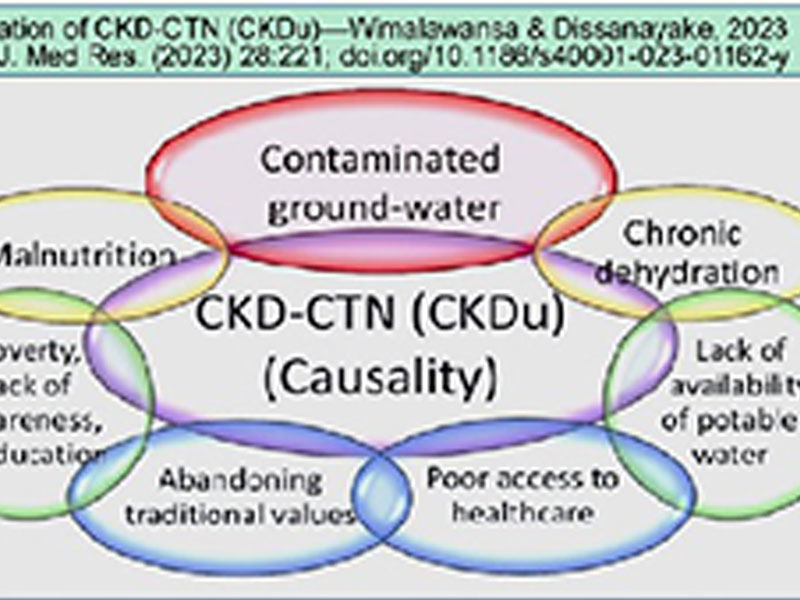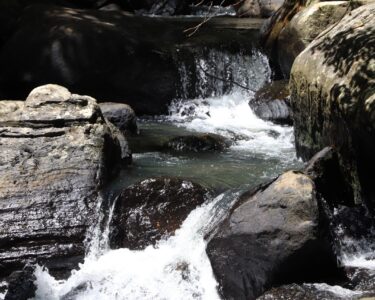Chronic kidney disease of unknown etiology (CKDu) has plagued Sri Lanka’s dry zones for decades, causing widespread suffering and premature deaths. While many hypotheses have been proposed, the exact cause remains elusive. However, recent research has shed new light on the disease, revealing its true culprit: the combination of hard water, excess phosphate, and fluoride, exacerbated by chronic dehydration.
Dr. Sunil J. Wimalawansa (Prof. of Medicine) and Chandra B. Dissanayake (Prof. of Geology) who have published a joint paper, argue that if the ‘culprits’ are handled properly CKDu could be handled.
The Current Approach is Failing
The current strategy of expanding dialysis centers and transplantation services is a costly and ineffective way to address CKDu. It’s like trying to hold a tail to tame a tiger – we’re treating the symptoms, not the root cause.
The Solution: A Multi-pronged Approach
Prevention is the key to eradicating CKDu. We need to focus on providing safe, affordable, clean water to the affected and adjacent regions. Additionally, we must educate peasants about the importance of hydration and encourage them to adopt healthier lifestyles.
The Need for Political Will
The lack of political will is the main obstacle to eradicating CKDu. We need the government to prioritize this issue and allocate resources to implement effective prevention programs.
Sri Lanka’s Unique Position
Sri Lanka has the technology, know-how, and essential resources to eradicate CKDu without relying on international expertise. We have the opportunity to become a global leader in this field.
Call to Action
The scientists urge the government of Sri Lanka to take decisive action to eradicate CKDu. This is a public health emergency that demands our immediate attention.
Together, we can save lives and prevent the suffering of countless Sri Lankans,point out the scientist.
#CKDu #SriLanka #Prevention #Eradication #CallToAction
link to the paper :https://rdcu.be/dgagf







